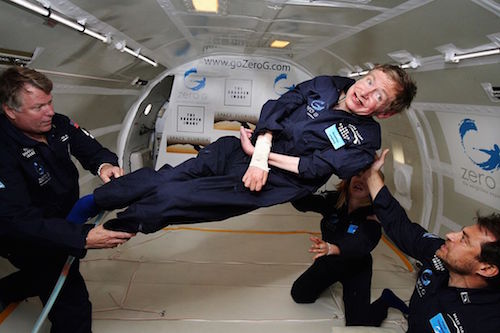 Culture & Ethics
Culture & Ethics
 Medicine
Medicine
Stephen Hawking: Suicide if I Become a Burden, Can’t Contribute

I have been warning that the high-profile normalization of assisted suicide — and the media celebrating those who kill themselves in the face of disease — is leading toward an ethic in which people kill themselves to avoid being a “burden,” imagining what is, in essence, a moral duty to die.
Now the famed physicist Stephen Hawking has joined the parade, saying he would commit assisted suicide if he was no longer contributing or felt like a burden. From the story in the Telegraph:
When asked by O’Briain about his support for assisted dying, and what condition he would have to be in to consider it for himself, the physicist said: “To keep someone alive against their wishes is the ultimate indignity.
“I would consider assisted suicide only if I were in great pain or felt I had nothing more to contribute but was just a burden to those around me.”
That’s a terrible thing to say — especially for him.
Hawking is not just a man on the street. His triumph in the face of what is usually a relatively swift-acting terminal disease, to become one of history’s greatest scientists, has been an important source of hope to people going through all sorts of terrible difficulties.
By saying that being a burden or unable to contribute justifies suicide — the actual issue is rarely pain, which can be significantly alleviated — Hawking abandons those who should be able to look to him as an inspiration for keeping on keeping on.
